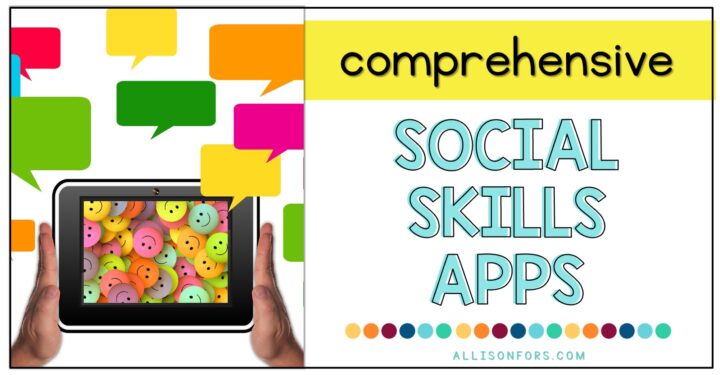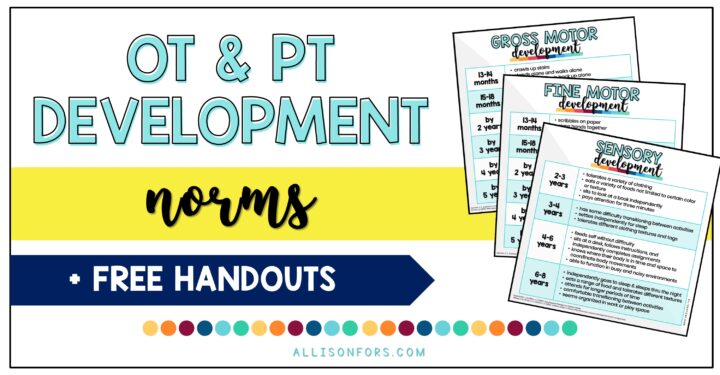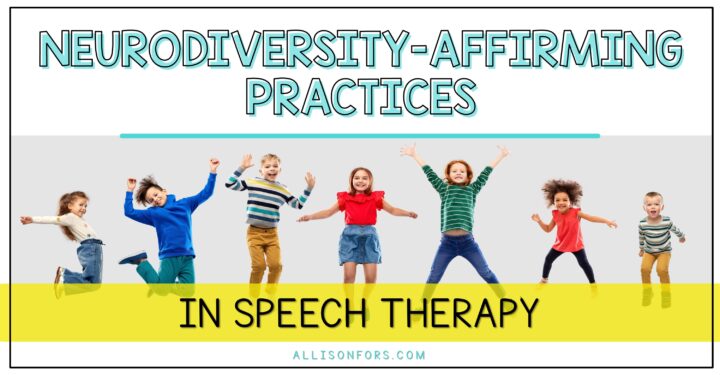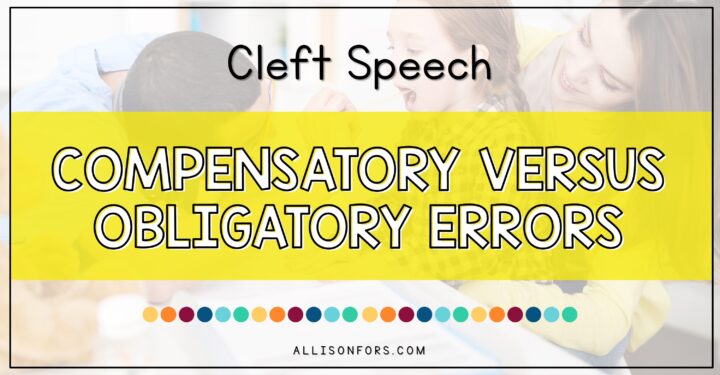
Auditory Memory and Processing in Speech Therapy

Auditory memory plays a crucial role in speech therapy, particularly for individuals who have difficulties with language, communication, or speech disorders. They are essential for understanding speech, following directions, filtering out background noise, and distinguishing between similar sounds.
What is auditory memory and processing?
Auditory memory refers to the cognitive ability to store, retain, and recall information presented orally or through sound. It involves the brain’s capacity to temporarily or permanently retain auditory stimuli for later recall or use. Auditory working memory plays a crucial role in various cognitive tasks, particularly those related to language learning, comprehension, and communication.
Examples include:
- Remembering a phone number after hearing it.
- Recalling a spoken conversation.
- Memorizing and recalling instructions given verbally.
- Recognizing and recalling familiar sounds or voices.
Auditory processing and memory is essential for everyday functioning, as it enables us to understand and retain information communicated, whether it is spoken language, music, or environmental sounds. It is closely related to other cognitive processes, such as attention, perception, and language processing.
Why are they important?
Difficulties in auditory memory and processing can impact learning, communication, and other aspects of cognitive functioning. Overall, they are essential for various aspects of daily life, from communication and learning to social interaction, safety, and cognitive functioning.
Auditory working memory is important for:
- Language Development: Auditory memory is closely linked to language development. Children with language delays or disorders may have challenges in processing and retaining auditory information, which can hinder their ability to learn vocabulary, syntax, grammar, and follow directions.
- Auditory Discrimination: Some individuals may struggle with distinguishing between similar sounds or phonemes, leading to difficulties in speech production or comprehension. Learning to differentiate between sounds, syllables, or words with subtle differences in pronunciation is important.
- Auditory Comprehension: Individuals with language disorders or learning disabilities may experience difficulties in understanding spoken language due to poor auditory processing or memory. Auditory comprehension is a fundamental aspect of communication and language processing, allowing individuals to understand what is being said to them and to respond appropriately.
- Following Directions: Auditory processing is essential for following verbal instructions. Children and adults with language disorders or attention deficits may struggle to remember multi-step directions or sequences of tasks.
- Reading and Literacy: Auditory skills are important for phonological awareness, which is the ability to recognize and manipulate the sounds of language. It includes skills such as rhyming, segmenting, and blending sounds, which are critical for reading and literacy development.
- Cognitive Functioning: Auditory processing and memory are interconnected with various cognitive processes, including attention, memory, and problem-solving. Strengthening these skills can enhance overall cognitive functioning and academic performance.
Auditory Memory Games and Activities
Auditory Memory Maps
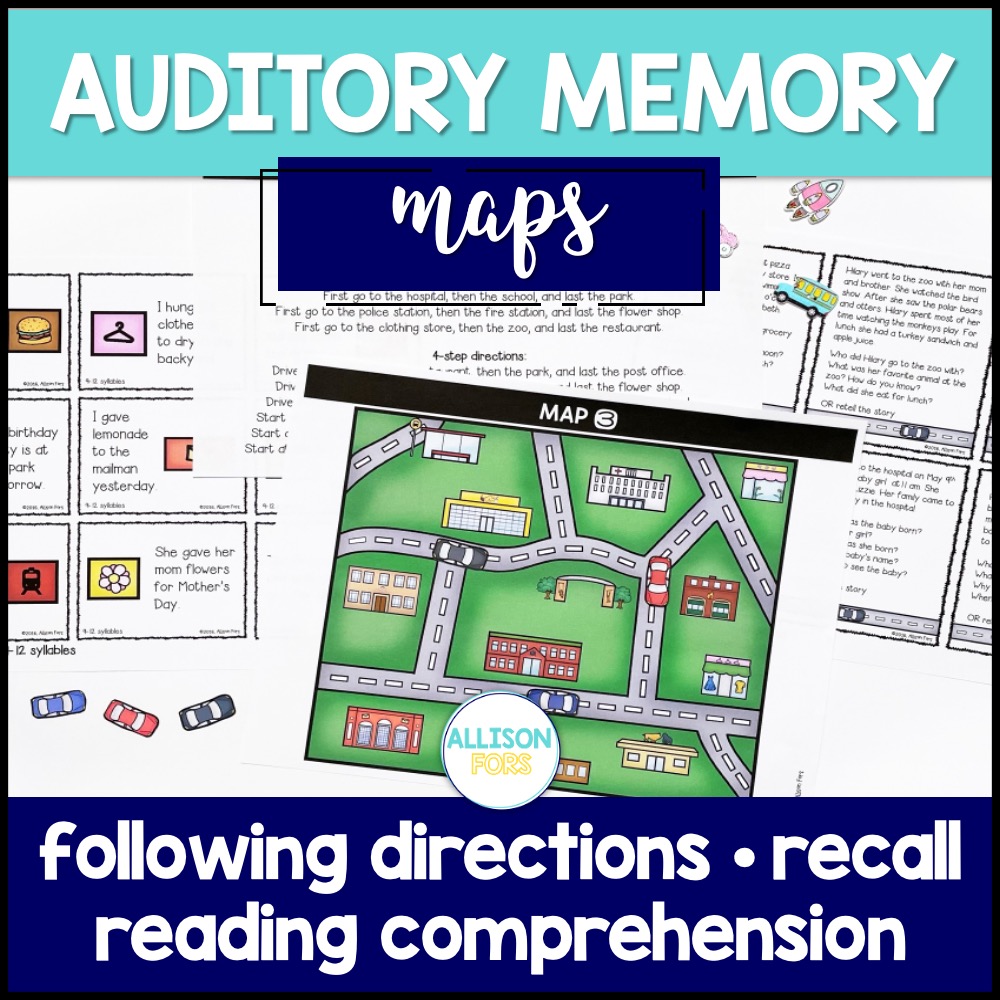
A comprehensive packet focusing on following directions, word and sentence recall, reading/auditory comprehension, and inferencing for speech therapy and the classroom. Use these multileveled activities to work on auditory memory in a functional AND engaging way! Whether adapting these resources for different age groups or specific learning needs, these auditory processing activities are great for creating a more inclusive and effective learning journey for every student.
Boom Auditory Memory Maps
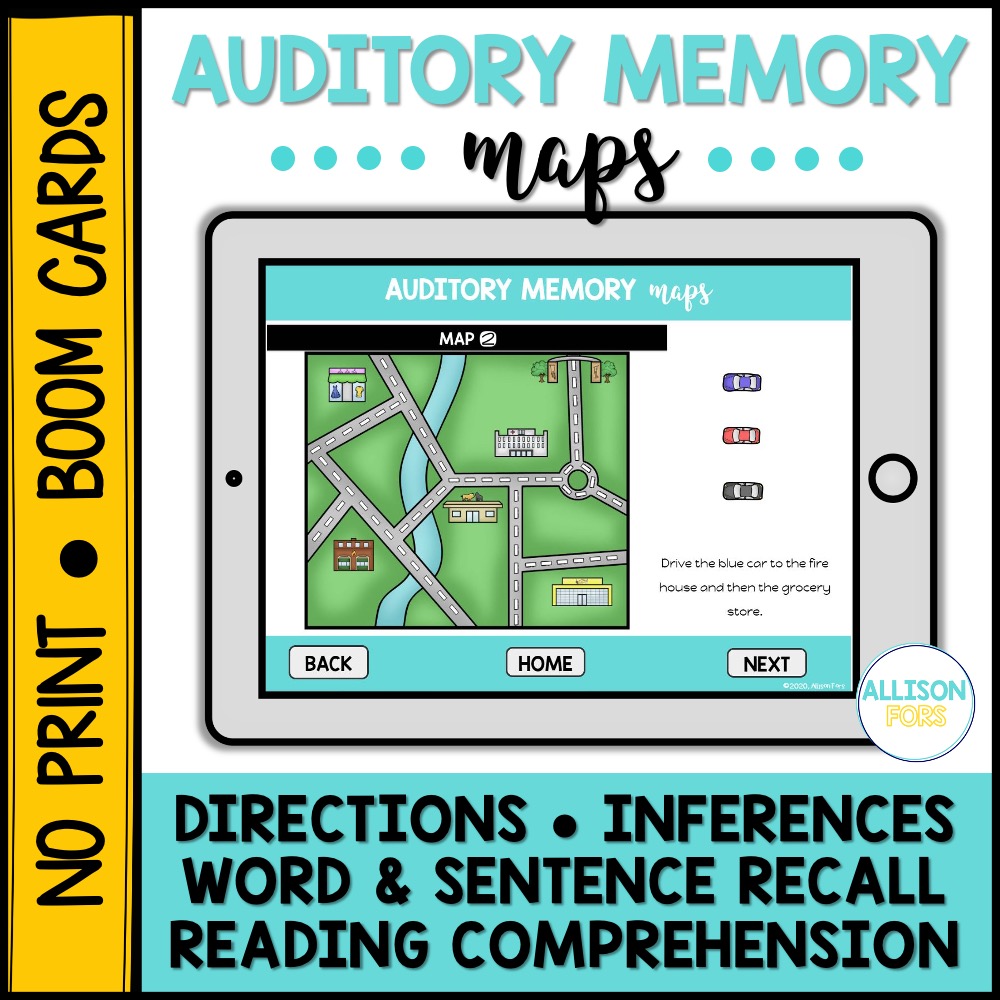
Perfect for strengthening auditory processing! These NO PRINT, self-grading cards focus on following directions, word and sentence recall, reading/auditory comprehension, and inferencing for speech therapy and the classroom. Use these multileveled activities to work on auditory memory in a functional AND engaging way! No print activity – great for speech teletherapy.
No Print Hawaii Language Activities

Language activities for speech therapy! Includes: verbs, pronouns, auditory memory, social skills, and conversation prompts. Great for speech teletherapy! This is a NO PRINT, interactive PDF. No printing, cutting, or laminating! Just download, save, and open on your computer or tablet.
You may also enjoy reading:
Using the Auditory Sandwich as a Language Intervention Tool




